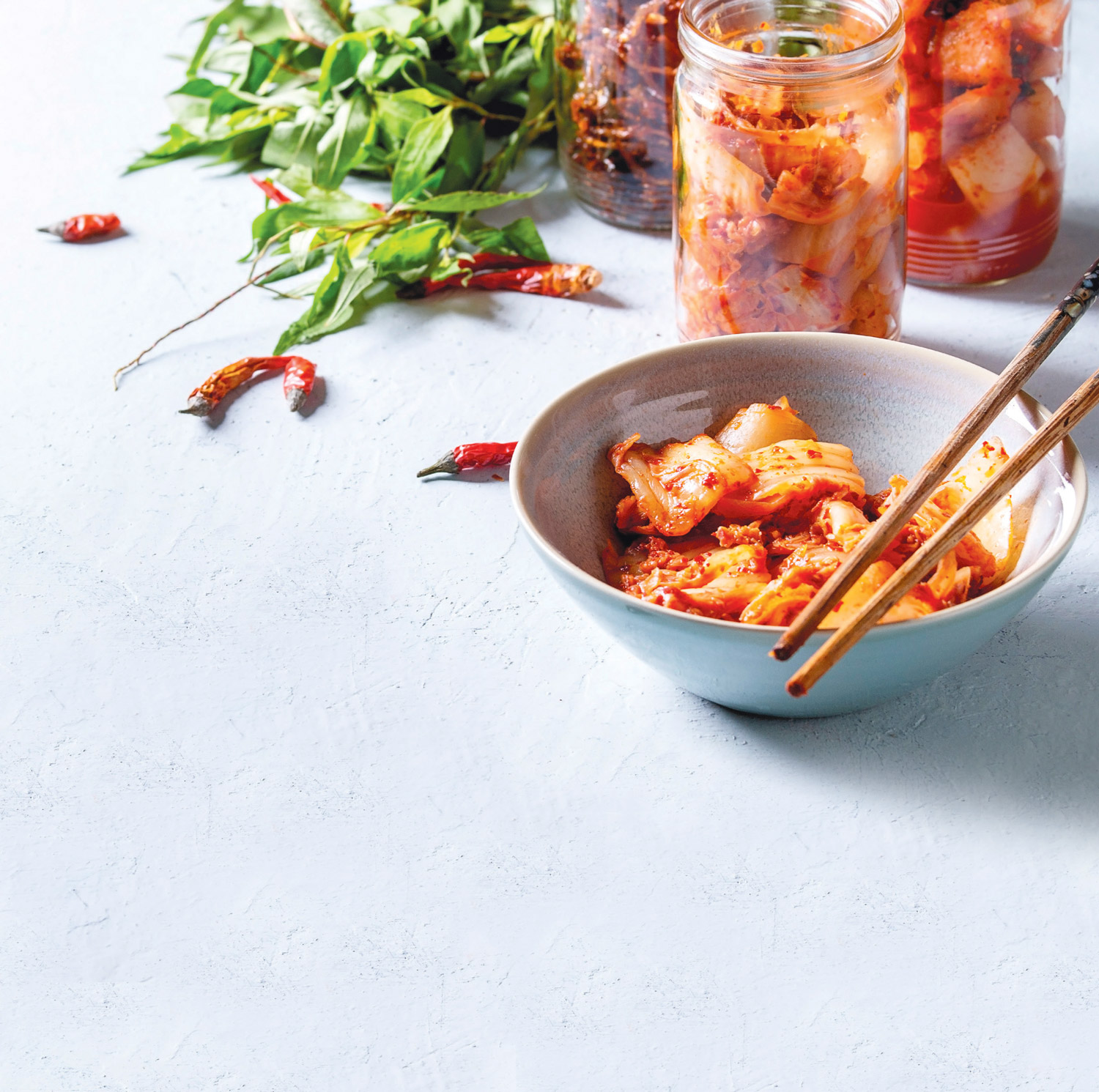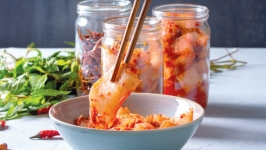Cool Kimchi
The fermented Korean dish offers gut-healthy goodness
Korean kimchi—the salted, fermented vegetable dish with roots dating back to 37 B.C.—is as good for the taste buds as it is for the gut.
Made of Napa cabbage, radishes, spring onions, garlic, ginger, jeotgal (salted seafood), and seasonings like gochugaru (chili powder), kimchi is a probiotic recipe that locals are eating up (both hot and cold).
At Charlie’s Bulgogi in Sarasota, owned by restaurateurs Charlie and Soomi Chi, kimchi is served in numerous forms. Specialties at the locale include bibimbop (warm white rice topped with namul or kimchi), spicy noodle soups, barbecue dishes, spicy rice cakes, fried tofu, short ribs, seafood hotcakes, and bulgogi (beef, pork, chicken, and vegetarian).
The Budae Jjigae soup is made with Spam, sausages, and kimchi. And one of the lunch-and-dinner spot’s most recent creations is the popular crispy kimchi hotcake. Customers flock to the eatery for the kimchi-rich cuisine, championing the flavors as well as the health perks.
“Scientific studies have shown that the biological compounds of kimchi stimulate immune function and reduce pro-oxidants, free radicals, certain cancers, cardiovascular disease, metabolic syndrome risks, and aging,” according to the National Institutes of Health.
There are hundreds of varieties of kimchi made with different vegetables as the main ingredients. Traditionally, kimchi was stored in the ground in large earthenware to prevent it from freezing during the winter. In the summer, the in-ground storage kept the kimchi cool enough to slow the fermentation process.
As a rule, regularly eating fermented foods like kimchi fuels good gut bacteria. Pickles, kombucha, yogurt, and miso are all examples of foods that are fermented (meaning the ingredients have been left to steep until their sugars and carbohydrates have become bacteria- boosting agents).
Kimchi is similar to sauerkraut, which is also made with fermented cabbage, but there are key differences. Not only is kimchi antibacterial but so are some of its other ingredients, like garlic and chili peppers. It is good for the heart, as it has been found to lower serum lipid levels. It boosts the immune system by reducing inflammation (a study found that the active principal compound in kimchi, HDMPPA, lessens inflammation in mice).
Like fatty fish and nuts, kimchi is linked to improved cognitive function. In one study performed on mice, scientists found that consuming kimchi was linked to better memory and skill learning, and researchers said it had the potential to lessen the symptoms of Alzheimer’s disease.
Spicy, delicious, and brain-bolstering, kimchi opens up the sinuses, aids digestion, and satisfies the taste buds, all in one sitting—a true Korean superfood.
> Charlie’s Bulgogi: 4567 Bee Ridge Rd, Sarasota; facebook.com/pages/category/Restaurant/Charlies-Bulgogi-738972793159913






